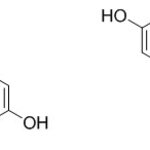
An entire generation of parents was brought up believing that if hospitals used antimicrobial soap, then homes deserved it too. An entire generation of doctors were brought up in a defensive medicine culture and taught that if a patient really wanted something, like antibiotics for a flu, they had to get it, or lawyers and politicians would be using them for media soundbites. An entire generation of the public were taught that every drug should have the lower cost of generic versions, which has stymied creativity. An entire generation of regulators told us that the solution to a drug like…







